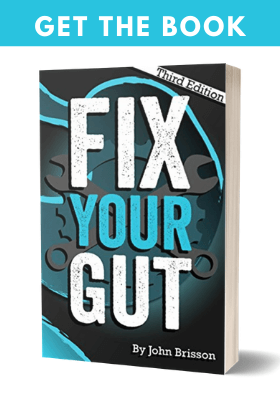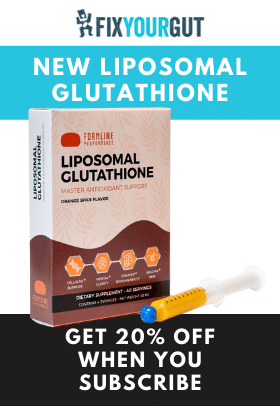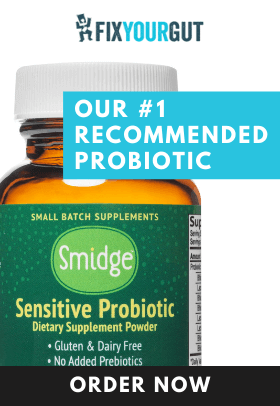“When’s the last time you ate a vegetable?” I asked at the dinner table last night. “Do chocolate covered potato chips count as a vegetable? Potatoes grow in the ground, right?” With each passing meal, the Christmas lights seem to glow a little dimmer, the children less enchanted with their new toys, and the weather more bitter. Could the rapid change in diet alter your microbiome to cause post-holiday depression? Absolutely.
Holiday Drinking
Statistics shows that your diet changes quite a bit over the holidays. NIH reports that alcohol consumption goes up roughly 30% around the holidays. 1 In nature, alcohol is produced by microorganisms to kill off the competition. Some microbes cannot survive even in a minimal concentration of ethanol. The data shows that even one night of heavy drinking alters the microbiome and serum LPS endotoxins soar. 2. Red wine has also been shown to influence the growth of individual organisms in the gut selectively as well. 3 Phenols in the wine alter the microbiome that can be detected by PCR testing, and in human biomarkers like blood pressure, C-reactive protein, and of course, bacterial endotoxin can accumulate in the brain and lead to post-holiday depression.
Gluten and Casein Proteins
Another common change in the holiday diet is the rise in bread and cheese co1nsumption. Cheese, sauces, pies, cookies, crackers, and stuffing are all very common and hard to avoid. A small percentage of people are sensitive to gluten and casein proteins. For the rest of us, the damage is more subtle. Gluten and casein proteins take a while to digest. This slows down the digestive process and gives microorganisms in the lower small intestine nutritionally dense proteins to happily ingest. These are the organisms that are likely to produce endotoxin. They also reside in the small intestine where intestinal permeability is increasingly common, which allows endotoxin to pass into the blood stream, accumulate in the brain, and cause depression, brain fog, and anxiety. 4
Grazing and Overeating
Delicious food is plentiful around the holidays. It seems that there are enough grandmothers to go around who are all baking delicious desserts. Food is available, it tastes amazing, and there is not enough activity to keep us from eating it, so we mindlessly graze throughout the season. Both grazing and overeating slow our motility or the transit time of food in our digestive tract. 5 When digestion is slowed, food stays in the small intestine for too long and ferments. When you overeat, matter from the large intestine sometimes will back up into the small intestine overpopulating it with bacteria that should not be there. 6 As in the case of casein and gluten, both increases intestinal permeability in vulnerable places. When both occur, LPS endotoxins leech into the bloodstream and affect the brain leading to depression and anxiety. 7
Now What?
The damage is done. You have overindulged over the holidays, and you are starting to feel the blues. The excitement is over, and the guests are beginning to head home, and you become very conscious of your post-holiday depression. So, now what? We need to do the opposite of what we did before: speed up MMC function (digestion), and strengthen the blood/gut barrier. Here is a protocol that many people have used to help:
- Eat less and less frequently, try to stick to three meals daily. No snacking!
- Supplement with 200-300mg of Magnesium Glycinate before bed
- Take Oil of Oregano upon waking, thirty minutes before breakfast
- Move during the day! Go for a walk, do some air squats, play your favorite sport.
- Take twenty grams of L–glutamine on an empty stomach to rebuild the gut membrane.
- Take the prebiotic, GOS, to feed bacteria in your gut that produce butyric acid that will protect the gut/blood barrier.
If your gut is messed up, you are suffering from post-holiday depression, and you need extra support, join us on our new Fix Your Gut Forums. Our growing community will help you restore your gut health!
- http://www.niaaa.nih.gov/alcohol-health/overview-alcohol-consumption/alcohol-facts-and-statistics ↩
- http://www.ncbi.nlm.nih.gov/pubmed/24828436 ↩
- http://www.ncbi.nlm.nih.gov/pubmed/22552027 ↩
- http://www.cabdirect.org/abstracts/20001418753.html;jsessionid=4DD0AE5A730554F3C8E46D18E51AB495 ↩
- https://books.google.com/books?id=8-T6CAAAQBAJ&pg=PA45&lpg=PA45&dq=frequent+meals+and+mmc&source=bl&ots=LOBjIEGR6z&sig=OYJYwZDjF6skMF9sst-7bY-FWzM&hl=en&sa=X&ved=0ahUKEwji-s3juf_JAhVG7SYKHV0jAZ8Q6AEIQjAG#v=onepage&q=frequent%20meals%20and%20mmc&f=false ↩
- http://www.ncbi.nlm.nih.gov/pmc/articles/PMC3400812/ ↩
- http://www.ncbi.nlm.nih.gov/pubmed/23300980 ↩







Thanks John!